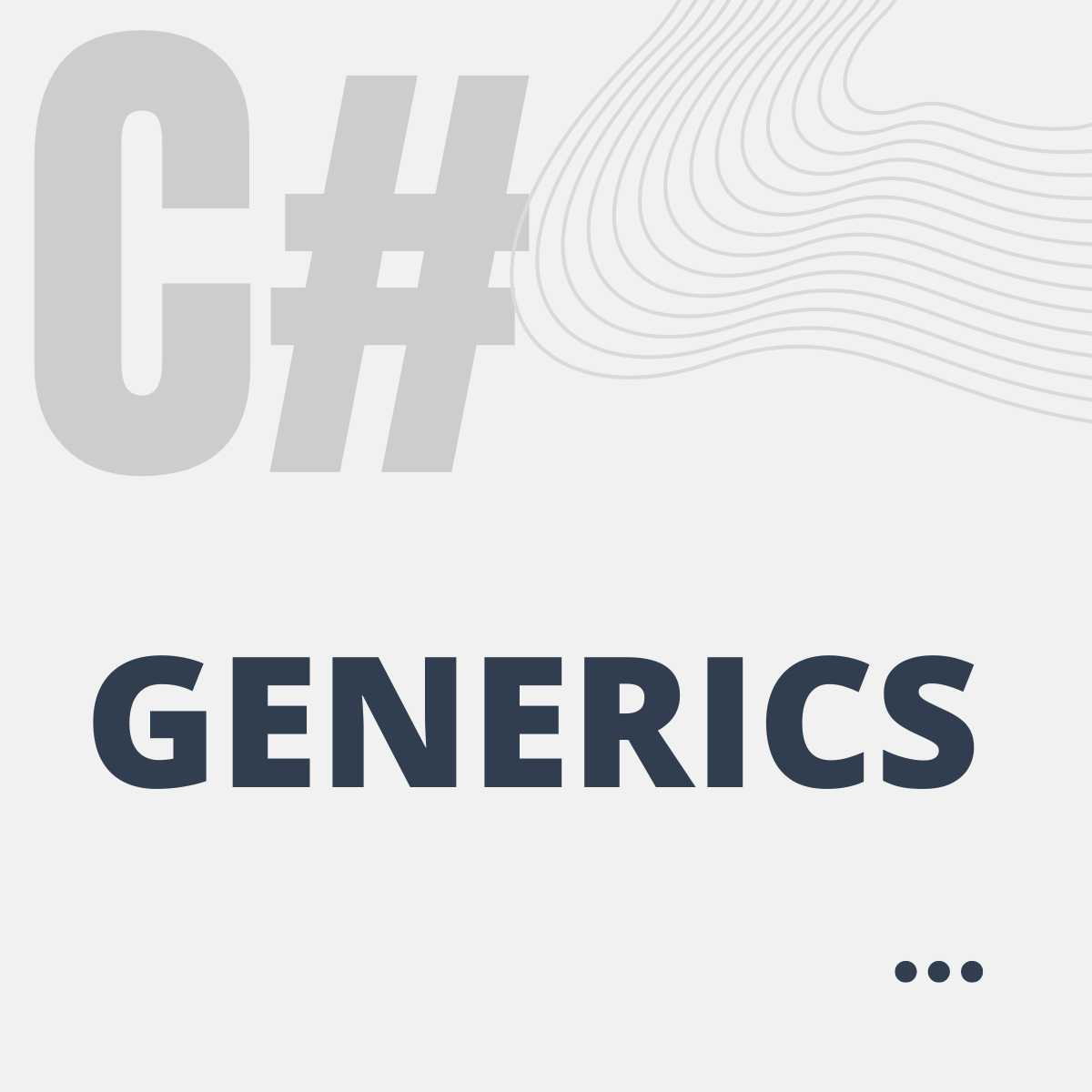Unlocking the Power of Generics in C# – Elevate Your Code with Flexibility and Reusability!
Today, let’s dive into the dynamic world of generics in C#.
What are Generics?
They’re blueprints for creating flexible classes, methods, and interfaces that can work with various data types, determined at runtime.
Think of them as placeholders (like T) that get filled in later, providing exceptional adaptability.
Benefits of Generics:
⚡️Enhanced code reusability: Write code once and use it with different types, reducing redundancy and streamlining development. ♻️
⚡️Stronger type safety: Compile-time checks prevent type-related errors, boosting code reliability and maintainability.
⚡️Improved performance: Just-in-time (JIT) compiler can often optimize generic code for specific types, leading to potential performance gains. ⚡️
⚡️Cleaner and more expressive code: Generics make intentions clear and reduce casting, promoting readability and clarity. ✨
Generics in C# offer a powerful way to write flexible and reusable code. Let’s explore some key benefits with illustrative examples:
⚡️Code Reusability:
Generics enable you to write functions and classes that can operate on different data types without sacrificing type safety. This leads to more reusable and versatile code.
public class Stack<T>
{
private List<T> items = new List<T>();
public void Push(T item) => items.Add(item);
public T Pop()
{
if (items.Count == 0)
throw new InvalidOperationException(“Stack is empty”);
T result = items[^1];
items.RemoveAt(items.Count – 1);
return result;
}
}
⚡️Type Safety:
With generics, you maintain strong typing, catching potential errors at compile-time rather than runtime. This enhances the robustness of your code.
public T FindMax<T>(T[] array) where T : IComparable<T>
{
if (array.Length == 0)
throw new InvalidOperationException(“Array is empty”);
T max = array[0];
foreach (T item in array)
{
if (item.CompareTo(max) > 0)
max = item;
}
return max;
}
⚡️Performance Optimization:
Generics can improve performance by avoiding boxing and unboxing operations, as the code is specialized for each data type.
public class Calculator<T>
{
public T Add(T a, T b) => (dynamic)a + (dynamic)b;
}
⚡️Collection Classes:
Generics are extensively used in collection classes, allowing you to create collections that work with any data type.
List<int> intList = new List<int> { 1, 2, 3 };
List<string> stringList = new List<string> { “apple”, “orange”, “banana” };
Applications of Generics:
✨.NET Framework collections (List, Dictionary, etc.)
✨Custom collection classes
✨Generic methods and algorithms
✨LINQ queries
✨ And more!
What’s your favorite use of generics in C#? Share your thoughts in the comments! Let’s learn and grow together. ✨
hashtagCsharp hashtagGenerics hashtagTypeSafety hashtagReusability hashtagPerformance hashtagCleanCode hashtagCodeExample hashtagDeveloperLife hashtagLinkedInLearning

